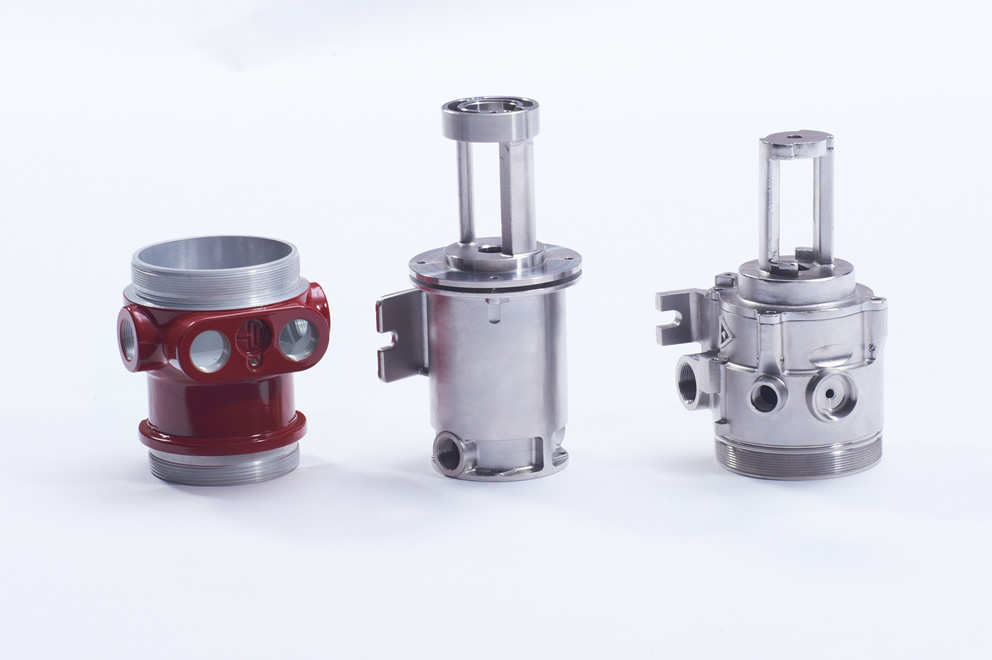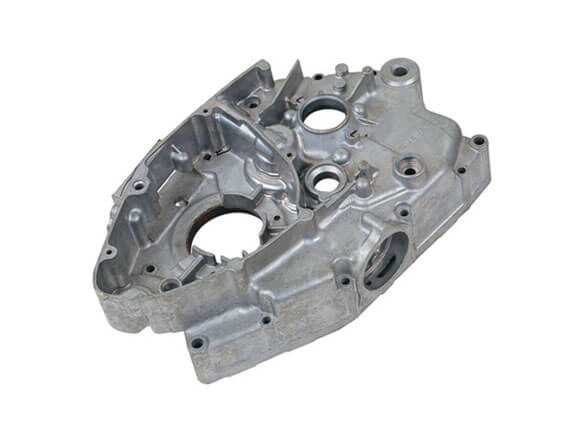Discover how innovative Precision aluminum casting enhances product performance
Wiki Article
The Role of Aluminum Foundries beforehand Lightweight Production Solutions
Aluminum factories greatly add to the development of lightweight manufacturing services. Their innovative spreading technologies produce high-strength, lightweight components vital for industries like auto and aerospace. This development not just enhances item performance however also promotes sustainability through using recycled materials. As these shops adjust to arising practices and innovations, they lead the way for future advancements in manufacturing efficiency and environmental responsibility. What exists ahead in this transformative journey?The Advantages of Lightweight Materials in Manufacturing
As industries significantly seek effectiveness and sustainability, the fostering of light-weight materials in manufacturing has actually become an essential method - Aluminum Foundry. These products, particularly aluminum and compounds, use numerous advantages that improve production procedures and product performance. Primarily, their lowered weight adds to lower power usage during transport and operation, bring about significant price financial savingsAdditionally, lightweight materials promote the layout of even more complicated geometries, enabling better technology in item growth. This adaptability commonly leads to improved performance and efficiency, accommodating the developing needs of modern customers.
Furthermore, the use of lightweight products can improve the longevity of products because of their resistance to corrosion and exhaustion. This longevity not just reduces maintenance costs however additionally supports sustainability efforts, as longer-lasting products add to much less waste. To sum up, the benefits of lightweight materials are essential in driving performance, development, and environmental duty in production.
Technologies in Aluminum Casting Technologies
Recent developments in aluminum spreading innovations are changing the production landscape, particularly in the production of light-weight components. Advancements such as high-pressure die spreading and vacuum cleaner die casting have actually significantly boosted the precision and surface area coating of aluminum components - Aluminum Foundry. These approaches enable for the production of intricate geometries while decreasing material waste and boosting mechanical homes
Additionally, the application of real-time tracking systems assures quality assurance throughout the spreading process, bring about more consistent product results. Jointly, these advancements not just enhance the efficiency of aluminum components yet also sustain the sector's change towards even more sustainable manufacturing methods.
Applications of Light Weight Aluminum Components in Numerous Industries
While light weight aluminum elements have actually long been made use of in different sectors, their flexibility and lightweight residential or commercial properties proceed to drive ingenious applications across fields such as automotive, aerospace, and construction. In the automobile market, light weight aluminum is significantly utilized for engine blocks, wheels, and body panels, boosting gas effectiveness and performance. Aerospace manufacturers leverage aluminum for aircraft frameworks and parts, maximizing its strength-to-weight proportion to enhance fuel economic climate and payload capability.In the building and construction sector, aluminum is preferred for window frameworks, roof, and architectural aspects, providing durability and resistance to corrosion while minimizing general structure weight. In addition, the electrical and electronic devices sectors gain from light weight aluminum's conductivity and lightweight nature, utilizing it in circuitry, enclosures, and warmth sinks. These varied applications highlight the vital role of light weight aluminum components, which not just satisfy industry demands however likewise contribute to improvements in product design and performance throughout multiple areas.
Sustainability and Power Performance in Aluminum Foundries
The aluminum shop market plays an essential function in promoting sustainability and power effectiveness, particularly as demand for lightweight parts remains to grow throughout various sectors. Shops are increasingly adopting ecologically friendly methods, such as making use of recycled light weight aluminum, which substantially decreases power intake and greenhouse gas exhausts contrasted to primary light weight aluminum production.Developments in casting modern technologies improve energy performance by optimizing the melting procedures and decreasing waste. Methods like die casting and investment casting permit specific product usage, minimizing excess and scrap.
Furthermore, many shops are purchasing renewable energy sources to power operations, further reducing their carbon impact. Implementing power management systems allows foundries to enhance and keep track of energy use, guaranteeing they operate at peak performance.

Future Trends in Lightweight Production Solutions
Exactly how will arising technologies form the future of lightweight manufacturing remedies? Advancements such as innovative materials, automation, and additive production are readied to redefine manufacturing processes. The combination of wise read manufacturing modern technologies, consisting of the Net of Things (IoT) and synthetic intelligence (AI), will make it possible for real-time surveillance and optimization, improving efficiency and reducing waste.
As sustainability continues to be an extremely important problem, lightweight services will significantly concentrate on reusing and reusing materials, straightening with round economy concepts. This evolution in light-weight production will certainly not only boost product performance however also contribute to environmental goals, making certain that the sector continues to be competitive in a quickly changing market landscape.
Frequently Asked Questions
How Do Light Weight Aluminum Foundries Make Sure Quality Control in Manufacturing?
Aluminum shops guarantee quality assurance in manufacturing via strenuous screening, standardized treatments, and continuous monitoring - Aluminum Foundry. company website They apply knowledgeable workers and innovative technologies to keep consistency, lower problems, and satisfy sector criteria throughout the manufacturing procedureWhat Are the Main Challenges Faced by Light Weight Aluminum Foundries?
Aluminum shops deal with obstacles such as fluctuating basic material costs, preserving manufacturing efficiency, making certain regular quality, adjusting to technical improvements, and conference environmental policies, all of which effect their general functional efficiency and competitiveness out there.Just How Does Aluminum Recycling Influence Factory Workflow?
Light weight aluminum reusing significantly boosts foundry operations by lowering basic material costs, lessening power consumption, and decreasing ecological effect. This sustainable practice makes it possible for shops to enhance performance while meeting enhancing demand for light-weight, high-performance light weight aluminum items.What Skills Are Needed for Workers in Light Weight Aluminum Foundries?
Employees in aluminum factories require abilities in metallurgy, machining, quality control, and safety and security methods. Proficiency in running equipment, recognizing alloy properties, and problem-solving are likewise necessary for efficient production and maintaining high security requirements.How Do Aluminum Foundries Deal With Waste Monitoring?
Light weight aluminum factories handle waste through recycling scrap steel, using reliable waste segregation strategies, and sticking to environmental policies. They apply sustainable techniques to reduce landfill payments, making sure that see here unsafe materials are gotten rid of properly.Light weight aluminum shops greatly contribute to the evolution of light-weight production solutions. Recent innovations in light weight aluminum casting modern technologies are changing the production landscape, specifically in the manufacturing of lightweight parts. While aluminum elements have long been used in different markets, their versatility and lightweight residential or commercial properties continue to drive cutting-edge applications across fields such as automotive, aerospace, and building. Additionally, the electric and electronics markets benefit from light weight aluminum's conductivity and light-weight nature, using it in electrical wiring, units, and warm sinks. The light weight aluminum factory sector plays a vital function in advertising sustainability and energy performance, especially as demand for light-weight parts continues to grow throughout different markets.
Report this wiki page